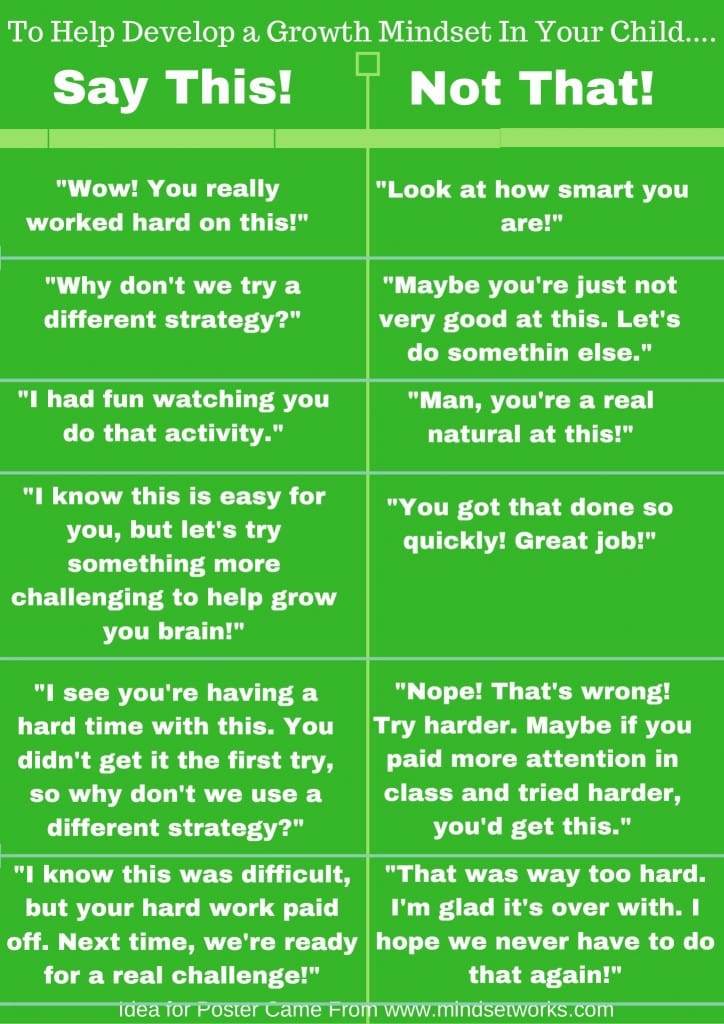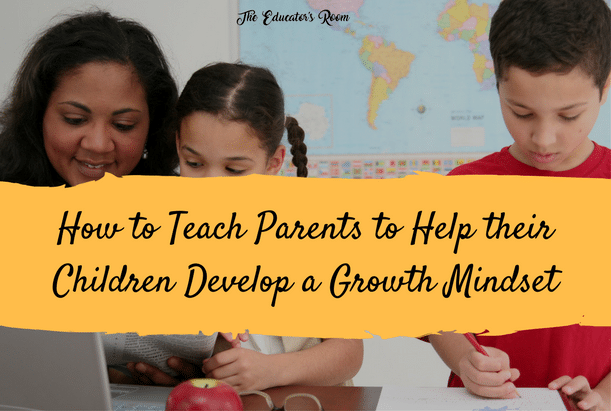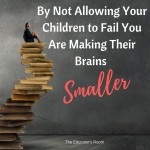Research has shown that when students have a fixed mindset they are less likely to find success than those with a growth mindset. As teachers, we can do many things to encourage a growth mindset. However, parents play a huge role in the lives of students, so coaching them using growth mindset language is essential for student success. Personally, I cringe whenever I hear a parent call a student stupid or lazy because these are all damaging and do little good to encourage students to do better. Instead, they take on that personality trait as if it belongs to them. So, what can we do to help parents have a growth mindset? Here are some ideas!
Teaching Parents to Obtain a Growth Mindset for Students
Work on the Language
First, let’s work on language. It can be difficult to change fixed patterns in language, but providing parents with a chart that shows them what they can say alternatively in situations might help. See the below poster you can show parents to help them learn the language they need to raise children with growth mindsets.

Mistakes are a Part of Learning
Make sure parents know that students should be responsible for their own work. Whenever they pick up the pencil to finish a sentence or a math problem for their child, they are robbing them of a learning opportunity. Fear of failure is the enemy of the growth mindset and can prevent learning from taking place. Teach parents as well as students that mistakes are just as valuable as the “right” answers, and that sometimes there can be more than one way to get to the right answer. Just as long as students continue to strengthen those neural connections through practice, they will grow and learn.
Teach Parents About the Brain Science
If parents are from the old school of thought, they likely think intelligence is fixed attribute. Teaching them about how the brain works, perhaps by sending home mini bulletins on fascinating brain facts or other creative methods can help open their minds. They more the know, the more they are likely to pass that information off to their children, who you’ve hopefully already taught about the brain. Remember, students learn by strengthening neural connections in their brains. The more they try at something, the stronger the connection and the more the brain is likely to become stronger. Just like football, ballet, and music, it takes practice to perfect a skill.
Emotional Responses Can Make or Break Learning Opportunities
Students need to feel safe in order to learn. Whenever they feel threatened, whether physically or emotionally, the brain devotes all of its energy to protecting the students from possible harm. Not only is it important to ensure that we were not creating the emotionally damaging situation, but it’s important to teach students how to cope with stress. Teach them breathing techniques, give them a stress ball, or brainstorm some ideas of ways that the student can feel relaxed enough to learn.
In Closing, The Brain is Pliable
If you can teach the parents anything about how the brain works, it’s that it’s malleable and open to learning. Having a growth mindset and teaching students how to have one as well can really help out a lot. While some students will need to work harder to achieve a goal than others, this doesn’t mean that they will never master the goal. Hard work and dedication leads to success. It’s time to dispel the myth of the fixed intelligence and spread the word that a growth mindset will ultimately lead to success for all students.







The little word YET is so powerful. Check out the new children’s book that teaches a growth mindset especially for young girls: https://www.amazon.com/Cant-Do-That-YET-Mindset/dp/1545237271/